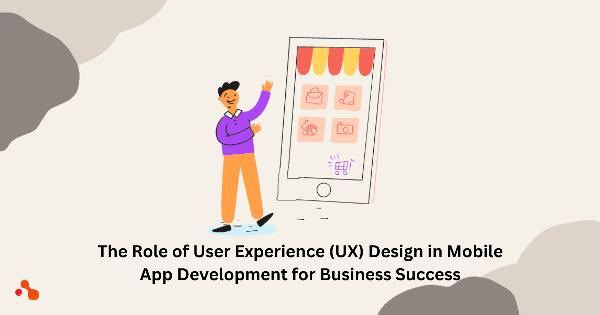 Social Media Content Packs – Stay Active Without Lifting a Finger!
Social Media Content Packs – Stay Active Without Lifting a Finger!
Virtual Reality App Development: Integrating AI and Machine Learning for Enhanced Experiences
Written by tracey » Updated on: June 17th, 2025

In the realm of technological innovation, the fusion of Virtual Reality (VR), Artificial Intelligence (AI), and Machine Learning (ML) has paved the way for groundbreaking advancements. Virtual Reality app development, in particular, has seen a significant surge in interest and investment owing to its potential to revolutionize various industries, from entertainment and gaming to healthcare and education. In this article, we will delve into the convergence of VR, AI, and ML, exploring how their integration is shaping the landscape of immersive experiences and pushing the boundaries of what is possible in virtual environments.
The Rise of Virtual Reality App Development
Virtual Reality, once a futuristic concept confined to science fiction, has now become an accessible technology with the advent of VR headsets and immersive content. VR transports users to computer-generated environments, allowing them to interact with and experience a virtual world as if they were physically present. From simulating realistic scenarios for training and education to offering immersive gaming experiences, VR has unlocked a myriad of possibilities.
Virtual Reality app development has witnessed exponential growth, fueled by advancements in hardware, software, and content creation tools. Developers are capitalizing on the potential of VR to deliver engaging and immersive experiences across various platforms, including smartphones, standalone headsets, and tethered devices. With the market for VR applications projected to expand rapidly in the coming years, there is a growing demand for innovative solutions that leverage the full capabilities of this transformative technology.
Unlocking the Power of Artificial Intelligence
Artificial Intelligence, often hailed as the cornerstone of modern technology, has found its way into virtually every aspect of our lives. In the context of Virtual Reality, AI serves as a catalyst for enhancing immersion, interactivity, and personalization. By imbuing virtual environments with intelligent agents and adaptive systems, developers can create more dynamic and engaging experiences for users.
One of the primary applications of AI in Virtual Reality app development is in natural language processing and conversational interfaces. Voice recognition technology enables users to interact with virtual environments through spoken commands, facilitating more intuitive and immersive interactions. Whether it's conversing with virtual characters in a game or controlling virtual objects with voice commands, AI-powered interfaces add a new layer of realism to VR experiences.
Furthermore, AI-driven algorithms can analyze user behavior and preferences in real-time, allowing for dynamic content generation and personalized recommendations. By leveraging machine learning techniques, VR applications can adapt to the user's preferences, learning from their interactions and tailoring the experience to suit their individual needs and interests. This level of personalization not only enhances user engagement but also opens up new possibilities for content creators and marketers to deliver targeted experiences.
Enhancing Immersion with Machine Learning
Machine Learning, a subset of AI focused on developing algorithms that can learn and improve from experience, plays a crucial role in enhancing immersion and realism in Virtual Reality environments. Through the use of ML algorithms, developers can create more realistic simulations, intelligent NPCs (non-player characters), and lifelike animations, thereby elevating the overall quality of VR experiences.
One area where Machine Learning shines in Virtual Reality is in the realm of predictive analytics and user behavior modeling. By analyzing vast amounts of data generated by user interactions within virtual environments, ML algorithms can identify patterns, trends, and correlations that can be used to predict future actions and preferences. This predictive capability enables VR applications to anticipate user needs and adapt in real-time, resulting in more engaging and personalized experiences.
Moreover, Machine Learning algorithms can be employed to enhance the realism of virtual worlds by simulating complex phenomena such as physics-based interactions, natural environments, and human-like behaviors. Whether it's simulating the dynamics of fluid mechanics in a virtual laboratory or creating realistic crowd simulations in a VR game, ML algorithms can generate highly immersive experiences that blur the line between the virtual and the real.
Case Studies: AI and ML in Virtual Reality App Development
To illustrate the impact of integrating AI and ML in Virtual Reality app development, let's examine some real-world case studies where these technologies have been successfully employed to enhance user experiences:
Virtual Reality Training Simulations: In industries such as aviation, healthcare, and manufacturing, VR training simulations are becoming increasingly prevalent for employee training and skill development. By incorporating AI-powered virtual instructors and ML-driven performance analytics, these simulations can provide personalized feedback and adaptive learning experiences tailored to the individual needs of each user.
Immersive Gaming Experiences: In the realm of virtual gaming, AI and ML algorithms are being used to create more realistic and responsive NPCs, dynamic environments, and adaptive gameplay mechanics. Games like "Half-Life: Alyx" and "Boneworks" leverage advanced physics simulations and AI-driven enemy behaviors to deliver immersive and challenging experiences that push the boundaries of what is possible in VR gaming.
Healthcare VR Applications: Virtual Reality is increasingly being used in healthcare for therapeutic interventions, patient education, and medical training. By integrating AI-driven virtual assistants and ML-based patient monitoring systems, healthcare VR applications can provide personalized treatment plans, real-time feedback, and predictive analytics to improve patient outcomes and streamline clinical workflows.
Educational VR Experiences: In the field of education, VR offers immersive learning environments that enable students to explore complex concepts and environments in a hands-on manner. AI-powered virtual tutors and ML-based adaptive learning systems can provide personalized instruction, feedback, and assessments, catering to the individual learning styles and abilities of each student.
Challenges and Future Directions
While the integration of AI and ML holds immense promise for enhancing Virtual Reality experiences, it also presents several challenges and considerations that developers must address:
Ethical and Privacy Concerns: The collection and analysis of user data in VR environments raise concerns about privacy, data security, and algorithmic bias. Developers must adhere to ethical guidelines and implement robust privacy safeguards to protect user information and ensure fairness and transparency in AI-driven systems.
Hardware Limitations: AI and ML algorithms often require substantial computational resources to train and deploy, which may pose challenges for resource-constrained VR platforms such as mobile devices and standalone headsets. Optimizing algorithms for efficiency and scalability is essential to ensure optimal performance on these platforms.
Content Creation and Curation: Developing high-quality VR content that effectively integrates AI and ML capabilities requires specialized skills and expertise. Content creators must possess a deep understanding of both the technical aspects of VR development and the principles of AI and ML to deliver compelling and immersive experiences.
Looking ahead, the future of Virtual Reality app development lies in further integration with AI and ML technologies to create even more immersive, interactive, and intelligent experiences. As hardware capabilities continue to evolve and AI algorithms become more sophisticated, we can expect to see groundbreaking innovations that push the boundaries of what is possible in virtual environments. From personalized virtual assistants and intelligent NPCs to lifelike simulations and predictive analytics, the convergence of VR, AI, and ML holds the promise of transforming how we perceive and interact with virtual worlds. As developers continue to explore the synergies between these technologies, Virtual Reality is poised to become not just a medium for entertainment and escapism but a powerful tool for learning, creativity, and human expression.
https://appinventiv.com/ar-vr-app-development/
Note: IndiBlogHub features both user-submitted and editorial content. We do not verify third-party contributions. Read our Disclaimer and Privacy Policyfor details.
Copyright © 2019-2025 IndiBlogHub.com. All rights reserved. Hosted on DigitalOcean for fast, reliable performance.














